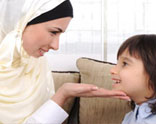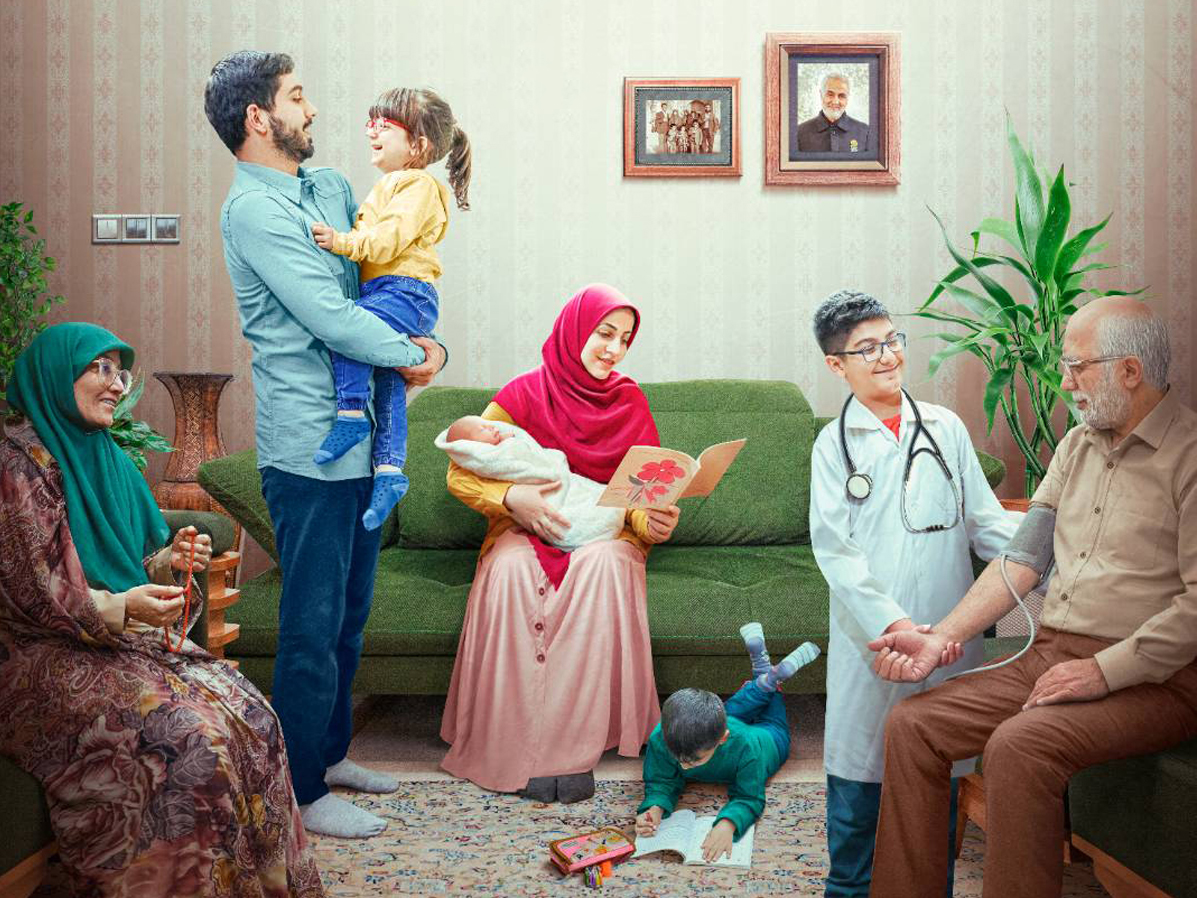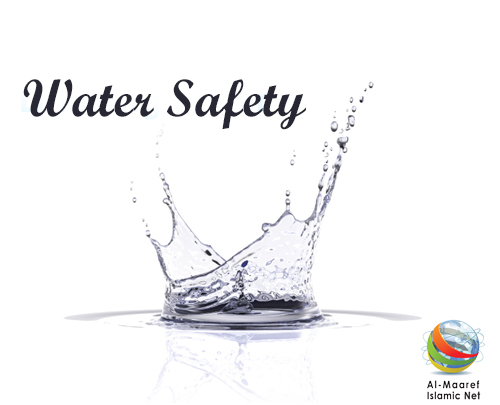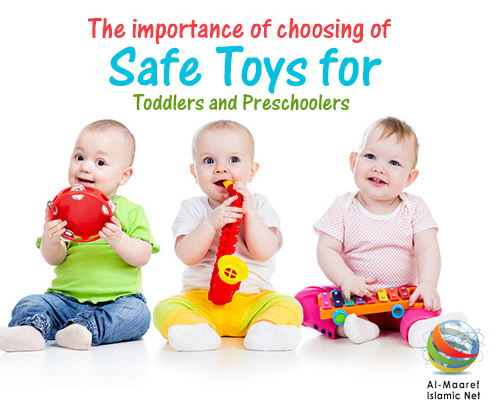During the other seven years which are from age seven to fourteen, a child gains
all the characteristics, talents and acquired education. At this age, a child’s
intellectual capacities grow and he receives the basic sciences and social
conducts. Moreover, parents must pay attention to their child at this age more
than ever, especially when it comes to his friends’ circle.
Versions have mentioned many qualifications that a child must acquire during
these seven years:
1- Manners and Morals
In this period, a child is like a white page receiving all manners, conducts and
morals that grow stronger in his soul. The basic foundation in his behavior must
start in this phase where parents must teach their children social morals and
manners, as The Most Honorable Messenger (Allah’s prayers and peace upon Him and
His Household) said:
“Be generous with your children and discipline them well, for Allah will
forgive (your sins).”
In another Hadith for Him (Allah’s prayers and peace upon Him and His
Household):
“If someone disciplines his son, it’s better for him than giving a sum of
money (the quantity that fits a pot of 1.35 liters) every day as a charity.”
2- Learning
The foundation of learning is reading and writing, as The Messenger of Allah
(Allah’s prayers and peace upon Him and His Household) says:
“A child’s rights over his father are of three: to
choose for him a good name, teach him writing and help him to get married when
he reaches puberty.”
Parents should follow all the developments in education because science is in
constant expansion and progress, since education is the basis of all their
future jobs.
3- Teaching the Prayer
The Prince of Believers (p.b.u.h) said:
“Teach your boys the prayer and enjoin them to perform
it when they reach puberty.”
We must be aware in this case that teaching the prayer at this age was
distinguished from the age of puberty in the version. After puberty boys must be
enjoined to perform it and this is an expression that shows the prayer as an
obligation that shouldn’t be underestimated. Yet before that a child must learn
how to perform it and this means that teaching him at this age should be
accompanied by mercy and gentleness.
4- Teaching Quran
The Most Honorable Messenger said:
“…and who teach him the Quran, the parents are called, covered with dresses
and their light enlightens the faces of the people of heaven.”
The Quran is the code of life and the light of hearts; it assures help for those
who are aware of its goals and abide by its judgments. A child is more capable
of memorizing the Holy Quran than fathers and the elderly, so it’s important for
parents to guide their children to memorize the Quran and learn its laws and
meanings.
5- Teaching the Honorable Hadithes
This means the Hadithes of The Most Honorable Messenger Mohammad and His
Household (Allah’s prayers and peace upon Them). However, parents must be very
careful when choosing the Hadithes with the right content without any doubts.
In addition to that, a child must be warned about the perversion currents
because it’s easy to convince him at this age.
Imam Al-Sadek (p.b.u.h) said:
“Teach your children the Hadithes, before the perverted sects do.”
6- Teaching the Halal (Allowed) and The Haram
(Forbidden)
At this age, a child must be taught the Halal, the Haram and the basic legal
judgments. Imam Al-Sadek (p.b.u.h) said: “A child plays seven years…..and
learns the Halal and the Haram seven years.”
7- Swimming and Shooting
Swimming and shooting are healthy sports and honorable versions incited parents
to teach them to their children. In a Hadith for the Messenger of Allah (Allah’s
prayers and peace upon Him and His Household): “Teach your children swimming
and shooting.”
Beating Children at This Age
In the speech of The Messenger of Allah (Allah’s prayers and peace upon Him and
His Household) about the grace of Ramadan: “Revere your elderly and have
mercy on your young ones.”
It’s unjust to use the child as a breathing space for the parents’ psychological
pressure, until the education way used for him is beating! For example, a father
returns home tired after a long day at work and finds that his son has made a
mistake, so the only way of discipline that occurs to his mind is beating.
It’s really wrong and unjust that a child becomes a victim for the psychological
complexes that parents carry. Therefore, we find that the honorable Hadithes
described beating as not the best way for disciplining a child. One of the
companions of Imam Al-Kazem (p.b.u.h) said:
“I complained for Abu Al-Hassan Moussa (p.b.u.h) a son of mine, so he told me:
“Don’t beat him, but leave him and don’t take a long time.”
The Imam (p.b.u.h) answered the man by preventing him from beating his son and
to choose another way to censure if it was necessary, which is showing him that
you’re not satisfied through abandoning him. This abandonment shouldn’t turn
into an interruption, but it’s only a psychological discipline to reform his
conduct.
The Limits of Beating a Child
If there are no ways left to discipline a child except beating, this is
permitted but within limits that shouldn’t be crossed.
In a version of Himad son of Othman: I asked Abu Abdullah about disciplining the
child and the slave, so He said: ‘Five or six (beats) with mercy.”
So beating shouldn’t be continuous and hard for more than five or six and it
shouldn’t be tough but gentle so that the color of the skin doesn’t change into
red or black as a result of the beating. Moreover, a tough beating might hurt a
child or break a bone in him, May Allah forbids that.
If a parent does this, he must pay a wergild for his child and this is what will
be explaining later.
The Wergild of Beating
The legislator made a wergild for the cruel beating that parents use on their
children, as a punishment for what they have committed. To clarify these
wergilds, we divided beating into three sections inserted in the following
tables:
The Wergild of Beating on the Face:
The condition The wergild in gold
If the face turns red. 5.4 grams
If the face turns green. 10.8 grams
If the face turns black. 21.6 grams
If the skin peels without blood (like a scratch). The wergild in camels:
One camel
If the wound penetrates the flesh. Two camels
If the wound is deeply in the flesh but didn’t reach the thin skin that covers
the bones. Three camels
If the wound is deeply in the flesh and the thin skin that covers the bones is
cut. Four camels
If the wound shows the whiteness of the bones. Five camels
The Wergild for Beating the Body:
The condition The wergild in gold
If the body turns red. 2.7 grams
If the body turns green. 5.4 grams
If the body turns black. 10.8 grams
As for the wound in the body, it depends on the location and the details are in
the books of the Islamic jurisprudence.




















